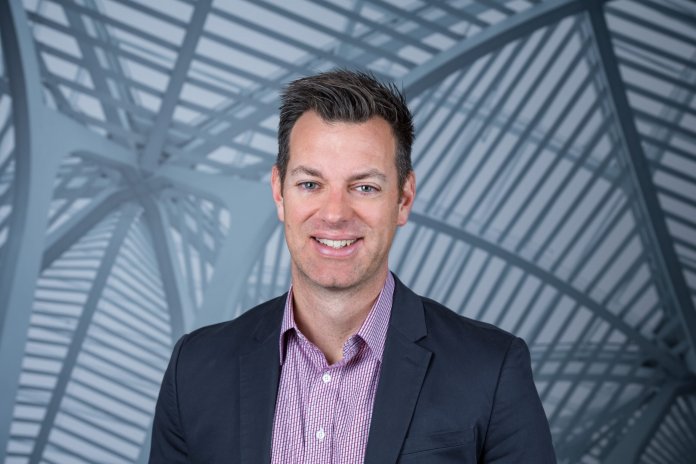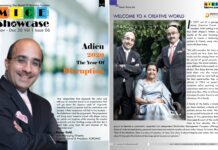TMS. Loren, with over 25 years immersed in tourism and hospitality, how has your leadership style evolved when transitioning from hotel management to leading a global alliance focused on legacy and impact?
Loren Christie. Managing a large corporate sales team in the hotel world was very much centered around achieving our yearly sales revenue targets. Supporting and assisting my team members in getting to that annual target. A lot of encouragement, training, accountability and celebrating of wins. As Managing Director of the Alliance, it is more about ensuring the 13 destination partners are aligned in the long term strategy for the Alliance. It’s not about one singular target, it’s about multiple objectives and balancing different needs. It’s much more listening and working with all partners to ensure they are moving in the same direction. And making sure that they are being accountable to each other and the long term vision of legacy and impact versus hitting that number for “the corporation”. So my style is much more collaborative in the current role.
TMS. BestCities is renowned for championing sustainable legacy in meetings. What innovative models or metrics are you most excited about that measure and maximize event legacy beyond economic impact?
Loren Christie. At BestCities, we see legacy as so much more than just economic impact. It’s about creating lasting, meaningful change – whether through expanding local skills, improving community wellbeing, preserving the environment, or advancing equity. What really excites me is how technology is helping us not only deliver these kinds of outcomes, but actually measure and scale them in ways we couldn’t before.
Across our 13 member cities, technology like AI, VR, blockchain, and real-time translation is driving creativity and impact. At the BestCities 2025 Global Forum, we used tech to track sustainability, enable multilingual access, and capture real-time insights- turning engagement and knowledge-sharing into measurable outcomes. Member cities are also leveraging innovation for lasting legacies: Vancouver’s Web Summit 2025 spotlighted Indigenous-led digital sovereignty, Washington, DC used AR and VR to promote human-centered policymaking, and Cape Town applied AI to enhance inclusivity and social impact at major global conferences.
At BestCities, we’ve always built legacy into our DNA – examples include the Madrid Challenge, our Commitments to a Sustainable Future, and the Incredible Impacts Programme. Now, we can layer in innovation to take that impact even further.

TMS. The alliance comprises diverse global destinations. How do you foster collaborative innovation while respecting each city’s unique cultural and regulatory context?
BestCities is a global alliance of leading conference destinations, but what really brings us together is a shared commitment to collaboration and positive impact. Every city that joins the network goes through a thorough vetting process – not just to check for logistical capabilities, but to ensure they align with our mission and values. It’s important to us that every member is willing to work together and respects the diversity of the group. We foster innovation while respecting each city’s identity through flexible initiatives like the Madrid Challenge, which lets members set their own sustainability and legacy goals. Rather than a one-size-fits-all approach, it empowers cities to act on what fits their local context. Ongoing workshops, Community Café sessions, and the Global Forum keep dialogue alive year-round- sharing ideas, challenges, and success stories that inspire adaptation, not imitation. Ultimately, we’re not asking cities to change who they are, but to contribute their unique strengths to a shared global legacy.
TMS. Technology is reshaping delegate engagement. Which emerging tools or platforms do you believe will revolutionize how business events create personalized, immersive experiences?
Loren Christie. Technology is completely changing how delegates connect with and experience events. We’re seeing amazing tools emerge that are pushing personalization and immersion to new levels. One example I’m really excited about is Snapsight, an AI-powered platform we use at BestCities. It captures live event content in real-time, distilling it into key insights, summaries, and even idea clouds. It also supports multiple languages, making sessions instantly more accessible to global audiences. Whether you’re an organizer, speaker, or attendee, it gives you instant takeaways and actionable information right on the spot. It’s not just about AI- it’s about using technology to create meaningful impact. Through our Engage for Good initiative, every delegate interaction supports local causes, like the Solas Project at our 2025 Global Forum in Dublin. Across member cities, innovation is reshaping experiences: Singapore is integrating generative AI into tourism and events for more inclusive, multilingual engagement; Tokyo’s events like SusHi Tech Tokyo and WebX use interactive tech to build empathy; and Dublin’s INTERSPEECH 2023 showcased accessibility with AI-powered captions. From immersive tools to purpose-driven platforms, the delegate experience is becoming smarter, more inclusive, and deeply impactful.
TMS. Hybrid and virtual formats remain important. From your perspective, what operational innovations best balance accessibility with meaningful in-person networking in a post-pandemic world?
Loren Christie. The shift to hybrid events has completely redefined how we can connect on a global scale. What we’re seeing now is that it’s no longer enough to just “add Zoom to ballroom.” The real innovation happens when accessibility and authentic human connection are baked into the experience from the start.
Here are some standout ways the game is changing:
1. Tiered participation. Whether you’re attending in person, tuning in live online, or catching up on-demand, events now cater to different levels of engagement – without sacrificing impact.
2. Hybrid networking. AI-powered matchmaking tools are bridging the gap between in-person and virtual attendees, while micro-networking rooms – both physical and digital –are creating space for real conversations. Some events even have “hybrid lounges” where remote and onsite guests can interact in real time.
3. Asynchronous formats are getting smarter. These include recorded sessions replayed in local time zones or on-demand roundtables with follow-up networking built in. This maintains global reach while respecting local time and attention spans.
4. City infrastructure is stepping up. BestCities member destinations, for example, are introducing AV-ready venues and digital-friendly infrastructures. It’s not just about tech – it’s about cultural and social cohesion, too.
















